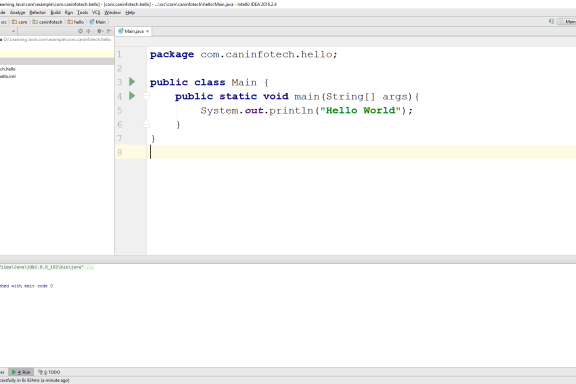Conditional statements are used to compare two data types of values in Java. You can use if, if…else and switch statements for this purpose.
If and If…else
These statements compare values and follow the steps based on whether the comparison is true or false.
Example:
public class Main {
public static void main(String[] args){
int a = 1;
int b = 2;
if (a>b){
System.out.println("a is greater");
}else if(b>a){
System.out.println("b is greater");
}else{
System.out.println("They are both equal");
}
}
}
Output
b is greater
Switch
The switch statement also compares values and follow the instructions based on when they are true.
Example
public class Main {
public static void main(String[] args){
int a = 1;
switch(a){
case 1:
System.out.println("It is one");
break;
case 2:
System.out.println("It is two");
break;
default:
System.out.println("It is nothing");
break;
}
}
}
Output:
It is one
Switch can compare byte, short, int and char, and in Java 7 string is also supported.


No Comments